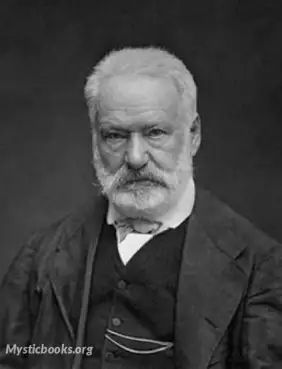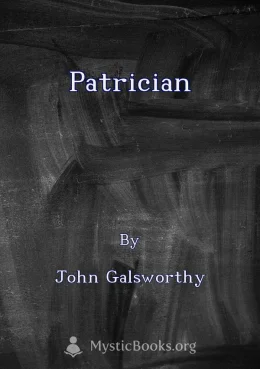
The Man Who Laughs
by Victor Hugo
'The Man Who Laughs' Summary
The novel is divided into two parts: La mer et la nuit (The sea and the night) and Par ordre du roi (On the king's command).
In late 17th-century England, a homeless boy named Gwynplaine rescues an infant girl during a snowstorm, her mother having frozen to death. They meet an itinerant carnival vendor who calls himself Ursus, and his pet wolf, Homo (whose name is a pun on the Latin saying "Homo homini lupus"). Gwynplaine's mouth has been mutilated into a perpetual grin; Ursus is initially horrified, then moved to pity, and he takes them in. 15 years later, Gwynplaine has grown into a strong young man, attractive except for his distorted visage. The girl, now named Dea, is blind, and has grown into a beautiful and innocent young woman. By touching his face, Dea concludes that Gwynplaine is perpetually happy. They fall in love. Ursus and his surrogate children earn a meagre living in the fairs of southern England. Gwynplaine keeps the lower half of his face concealed. In each town, Gwynplaine gives a stage performance in which the crowds are provoked to laughter when Gwynplaine reveals his grotesque face.
The spoiled and jaded Duchess Josiana, the illegitimate daughter of King James II, is bored by the dull routine of court. Her fiancé, David Dirry-Moir, to whom she has been engaged since infancy, tells Josiana that the only cure for her boredom is Gwynplaine. She attends one of Gwynplaine's performances, and is aroused by the combination of his virile grace and his facial deformity. Gwynplaine is aroused by Josiana's physical beauty and haughty demeanor. Later, an agent of the royal court, Barkilphedro, who wishes to humiliate and destroy Josiana by compelling her to marry the 'clown' Gwynplaine, arrives at the caravan and compels Gwynplaine to follow him. Gwynplaine is ushered to a dungeon in London, where a physician named Hardquannone is being tortured to death. Hardquannone recognizes Gwynplaine, and identifies him as the boy whose abduction and disfigurement Hardquannone arranged 23 years earlier. A flashback relates the doctor's story.
During the reign of the despotic King James II, in 1685–1688, one of the King's enemies was Lord Linnaeus Clancharlie, Marquis of Corleone, who had fled to Switzerland. Upon the lord's death, the King arranged the abduction of his two-year-old son and legitimate heir, Fermain. The King sold Fermain to a band of wanderers called "Comprachicos", criminals who mutilate and disfigure children, and then force them to beg for alms or be exhibited as carnival freaks.
Confirming the story is a message in a bottle recently brought to Queen Anne. The message is the final confession from the Comprachicos, written in the certainty that their ship was about to founder in a storm. It explains how they renamed the boy "Gwynplaine", and abandoned him in a snowstorm before setting to sea. David Dirry-Moir is the illegitimate son of Lord Linnaeus. Now that Fermain is known to be alive, the inheritance promised to David on the condition of his marriage to Josiana will instead go to Fermain.
Gwynplaine is arrested and Barkilphedro lies to Ursus that Gwynplaine is dead. The frail Dea becomes ill with grief. The authorities condemn them to exile for illegally using a wolf in their shows.
Josiana has Gwynplaine secretly brought to her so that she may seduce him. She is interrupted by the delivery of a pronouncement from the Queen, informing Josiana that David has been disinherited, and the Duchess is now commanded to marry Gwynplaine. Josiana rejects Gwynplaine as a lover, but dutifully agrees to marry him.
Gwynplaine is instated as Lord Fermain Clancharlie, Marquis of Corleone, and permitted to sit in the House of Lords. When he addresses the peerage with a fiery speech against the gross inequality of the age, the other lords are provoked to laughter by Gwynplaine's clownish grin. David defends him and challenges a dozen Lords to duels, but he also challenges Gwynplaine whose speech had inadvertently condemned David's mother, who abandoned David's father to become the mistress of Charles II.
Gwynplaine renounces his peerage and travels to find Ursus and Dea. He is nearly driven to suicide when he is unable to find them. Learning that they are to be deported, he locates their ship and reunites with them. Dea is ecstatic, but abruptly dies due to complications brought on by an already weak heart and her loss of Gwynplaine. Ursus faints. Gwynplaine, as though in a trance, walks across the deck while speaking to the dead Dea, and throws himself overboard. When Ursus recovers, he finds Homo sitting at the ship's rail, howling at the sea.
Book Details
Language
EnglishOriginal Language
FrenchPublished In
1869Authors

Victor Hugo
France
Victor-Marie Hugo was a French poet, novelist, and dramatist of the Romantic Movement. During a literary career that spanned more than sixty years, he wrote abundantly in an exceptional variety of gen...
Books by Victor HugoDownload eBooks
Listen/Download Audiobook
- Select Speed
Related books

Nelly Channell by Sarah Doudney
In the enchanting world of "Nelly Channell" by Sarah Doudney, secrets and mysteries unfurl like delicate petals. Hidden beneath the veneer of Victoria...

Magnificent Ambersons (Growth Trilogy Vol 2) by Booth Tarkington
The Magnificent Ambersons is a novel that explores the decline of an aristocratic family in the face of a changing world. The Ambersons are a wealthy...

Death in Venice by Thomas Mann
Death in Venice is a novella by German author Thomas Mann, published in 1912. It presents an ennobled writer who visits Venice and is liberated, uplif...

Castles of Athlin and Dunbayne by Ann Radcliffe
Set in the rugged beauty of the Scottish Highlands, "Castles of Athlin and Dunbayne" delves into a tale of love, betrayal, and the relentless pursuit...

On A Shadow In A Glass by Jonathan Swift
This book, while the title suggests a work of fiction, is likely a collection of essays or satirical writings by Jonathan Swift. Given Swift's known b...

Chapter Ends by Poul William Anderson
In a distant future, Earth has become a forgotten relic, its population dwindled to a few million living in simple peace and contentment. However, th...

Whither Thou Goest by William Le Queux
In "Whither Thou Goest," Guy, the son of the Earl of Saxham, finds himself embroiled in a world of political intrigue and danger when his father, driv...

Patrician by John Galsworthy
John Galsworthy's "Patrician" delves into the complexities of love and societal expectations within the Victorian upper class. Miltoun, an aspiring po...

Knave of Diamonds by Ethel M. Dell
Ethel M. Dell's "Knave of Diamonds" is a captivating tale of love and societal constraints set against the backdrop of the English countryside. Lady A...

Mary Tudor by Victor Hugo
Mary Tudor by Victor Hugo is a historical novel that tells the story of Queen Mary I of England. Mary is a powerful and ruthless ruler, and she is det...
Reviews for The Man Who Laughs
No reviews posted or approved, yet...